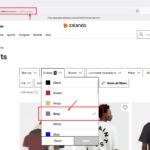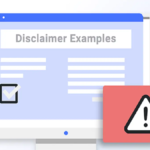Selling a business is a milestone event for any entrepreneur. It’s the culmination of years of hard work, smart decisions, and often a bit of luck. Yet the moment you decide to exit, a new set of questions arises chief among them: how much do brokers charge to sell a business? The answer isn’t a single number. Fees vary by deal size, industry, broker model, and even geography. Understanding these costs upfront prevents sticker shock and helps you choose the right partner.
In 2024, U.S. business-for-sale transactions topped $1.2 trillion in disclosed value (PitchBook Data). With that volume, brokers charge to sell a business anywhere from 5% to 12% of the final sale price, plus retainers and ancillary fees. This guide breaks down every cost layer, compares models, and arms you with negotiation leverage.
What Is a Business Broker and Why Use One?
A business broker is a licensed intermediary who markets your company confidentially, qualifies buyers, structures offers, and shepherds the deal to closing. Think of them as real-estate agents for private companies.
Core Value Proposition
- Confidentiality: Listings stay off public sites.
- Buyer Network: Access to private-equity roll-up funds, strategic acquirers, and high-net-worth individuals.
- Valuation Expertise: DCF, comparable sales, and rule-of-thumb multiples tailored to your sector.
- Paperwork & Due Diligence: NDAs, CIMs, LOIs, and coordination with attorneys and CPAs.
Without a broker, owners often undervalue their business by 20–30% (IBBA Market Pulse Q3 2024).
How much do brokers charge to sell a Business: Fee Breakdown
1. Success Fee (Commission)
The largest component. Typically 8–12% on deals under $1 million, sliding to 5–8% on $5 million+, and 2–4% (Lehman or Double Lehman formula) on $10 million+.
| Deal Size | Typical Success Fee | Example on $2 MM Sale |
|---|---|---|
| <$500k | 10–12% | $200k–$240k |
| $500k–$1M | 8–10% | $160k–$200k |
| $1M–$5M | 6–8% | $120k–$160k |
| $5M–$10M | 4–6% | $80k–$120k |
| >$10M | 2–4% (Lehman) | $40k–$80k |
2. Upfront Retainer
Ranges from $0 (pure success-fee shops) to $50,000+ for lower-middle-market M&A advisors.
- Main-street brokers (under $2M): $2,500–$15,000
- Middle-market investment banks: $25,000–$100,000 (often credited against success fee)
3. Monthly Work Fee
Some boutique firms charge $3,000–$7,500/month after the initial 90-day marketing push. Credited at closing.
4. Expense Reimbursement
Travel, third-party valuation reports, data-room subscriptions. Usually capped at $5,000–$15,000.
Factors That Move the Needle on Broker Fees
Business Size & Complexity
A $600k EBITDA SaaS company commands lower percentage fees than a $600k revenue laundromat because the buyer pool is larger and due diligence lighter.
Industry Vertical
- Healthcare & Pharma: Higher fees (9–12%) due to regulatory hurdles.
- E-commerce & Digital: Lower (6–8%) thanks to standardized metrics.
- Manufacturing: Middle ground (7–10%) with asset appraisals.
Geographic Market
Manhattan investment banks quote 1–2% higher than regional firms in the Midwest.
Broker Type
| Broker Type | Typical Fee | Best For |
|---|---|---|
| Main-Street Broker | 8–12% | <$2M revenue, local buyers |
| M&A Advisor / Boutique IB | 4–8% + retainer | $2M–$50M, strategic sales |
| Large Investment Bank | 1–3% (minimum $1M) | >$50M, public-company acquirers |
Hidden Costs Owners Overlook
- Double-Dipping on Real Estate If your deal includes a leased or owned property, some brokers take a separate 4–6% real-estate commission.
- Tail Period Standard clause: if a buyer introduced during the engagement closes within 24 months post-termination, full success fee applies.
- Earn-Out Structuring Fees Complex earn-outs can trigger 1–2% extra.
Sample Fee Scenarios
| Scenario | Sale Price | Retainer | Success Fee | Total Broker Cost |
|---|---|---|---|---|
| Neighborhood gym | $750k | $7,500 | 10% ($75k) | $82,500 |
| SaaS with $1.2M ARR | $4.8M | $25,000 | 6% ($288k) | $313,000 |
| Metal fabricator | $12M | $60,000 | Lehman (~3.2%, $384k) | $444,000 |
How to Negotiate Lower Fees
- Shop Three Brokers – Get term sheets in writing.
- Tiered Success Fee – 12% on first $1M, 8% thereafter.
- Credit Full Retainer – Non-negotiable for deals under $5M.
- Cap Expenses – Hard $5k ceiling.
- Short Tail – 12 months max.
Pro Tip: Offer a minimum fee floor (e.g., $150k) in exchange for a lower percentage. Many brokers accept because it de-risks small deals.
DIY vs. Broker: When to Skip the Middleman
| Factor | DIY | Broker |
|---|---|---|
| Time to close | 12–24 mos | 6–9 mos |
| Avg. multiple achieved | 2.8x SDE | 3.8x SDE (IBBA) |
| Confidentiality risk | High | Low |
| Out-of-pocket cost | $5k–$15k (attorney, CPA) | $50k–$300k |
- Revenue < $500k
- Local buyer already identified
- You have M&A experience
Red Flags When Vetting Brokers
- No license (check state real-estate or FINRA Series 79).
- Upfront fee > 25% of expected success fee.
- Guarantees a valuation without financial review.
- Refuses to disclose closed comps.
Regional Fee Snapshots (2025)
| Region | Avg. Fee % (<$2M deals) | Notes |
|---|---|---|
| California | 9.8% | Tech skew |
| Texas | 8.7% | Energy deals lower % |
| Midwest | 10.2% | Main-street heavy |
| Northeast | 9.1% | Finance buyers |
The Future of Broker Fees
Two trends are compressing percentages:
- AI Valuation Tools – Owners now arrive with Cap IQ or BizBuySell comps.
- Online Marketplaces – BizQuest and DealStream charge flat $3k–$10k listing fees, pressuring traditional brokers.
Still, human negotiation and buyer vetting keep full-service brokers relevant for 80% of transactions over $1M.
FAQ: How much do brokers charge to sell a Business
1. What is the average percentage a broker charges to sell a business?
For deals under $1 million, expect 10%. Between $1–5 million, 6–8%. Above $10 million, 2–4% via Lehman scale.
2. Are broker retainers refundable?
Rarely. Most are non-refundable work fees, though 70% of brokers credit them against the success fee at closing.
3. Can I sell my business without paying a broker commission?
Yes, but you’ll likely fetch 15–25% lower multiples and risk confidentiality breaches. Flat-fee consultants ($5k–$15k) are a middle path.
4. Do online business brokers charge less?
Platforms like Flippa or FE International take 5–10% with no retainer for digital assets, but traditional main-street brokers still dominate brick-and-mortar sales.
5. Is the broker fee tax deductible?
Yes. The IRS treats it as a capital expense reducing your net proceeds, thus lowering capital gains (consult your CPA).
6. Who pays the broker the buyer or seller?
Always the seller, unless a buyer engages a separate buy-side advisor (rare under $5M).
7. How long is a typical broker agreement?
12 months exclusive right-to-sell, followed by a 12–24 month tail.
Conclusion
The question “how much do brokers charge to sell a business” has no universal answer, but armed with the tiers, structures, and negotiation tactics above, you can budget accurately and avoid overpaying. Start by requesting three written proposals, stress-test the retainer credit policy, and align the fee schedule with your expected EBITDA multiple.













